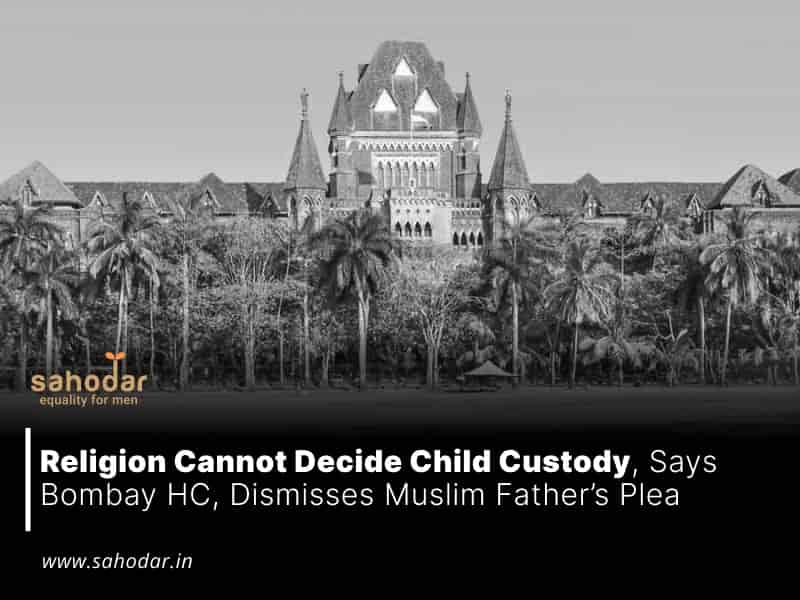The father, who sought the access to his three-year-old daughter, argued that under Muslim law, as the natural guardian, he should be awarded the custody of the child
The Bombay High Court on Monday noted that while religion may be a factor in determining child custody, it is not the predominant or decisive one [S v State of Maharashtra].
This observation was made by a Bench comprising Justice Sarang Kotwal and Justice SM Modak while dismissing a habeas corpus petition filed by a Muslim father seeking access to his three-year-old daughter, who is currently in the custody of her mother in Delhi.
The petitioner had argued that, as per Islamic law, a father is considered the natural guardian of the child.
However, the Court held that:
“The religion of a party is not the only consideration before the Court in such cases for consideration of the welfare of the child. The religion of the minor is only one of the considerations, but it is not a decisive overriding factor. It is only one of the many factors which the Court has to consider as to what is for the welfare of the minor. In our opinion, for a three year old girl child, being in the custody of her mother would be for her welfare.”
The petitioner, a Mumbai resident, contended that his wife, a US citizen, had secretly taken their daughter from Mumbai, where the child had been residing with him since her birth in 2022.
He asserted that his wife’s frequent international travel for her work as a fashion stylist and social media influencer indicated a lack of stable ties to India, rendering her unfit to be the child’s guardian.
Additionally, he argued that under Muslim personal law, he is the natural guardian and therefore entitled to custody.
However, the Court underscored that, as a general rule, it is in the best interest of young children to remain in their mother’s custody, barring any exceptional circumstances to the contrary.
“Ordinarily, the custody of a girl child who is around 7 years of age must ideally be with the mother unless there are circumstances to indicate that it would be harmful to the girl child to remain in the custody of the mother. In the present case, the child is hardly 3 years of age.”
The Court dismissed the claim that the wife’s so-called “erratic” lifestyle, stemming from her professional commitments, would hinder her ability to offer the child adequate care and a stable environment.
“It is a disputed fact which cannot be held as the truth to deny the custody of the child to the mother,” it said.
The Court further observed that the petitioner had an alternate legal recourse available under the Guardians and Wards Act, 1890.
Notably, the petitioner’s wife had already initiated proceedings under the same Act in New Delhi, where the court had issued an order restraining the father from forcibly removing the child from the mother’s custody.
In light of these developments, the High Court declined to grant relief to the father. However, it extended the interim order—barring the child’s removal from India—for an additional 60 days, allowing the father time to seek appropriate remedies under the Guardians and Wards Act.

